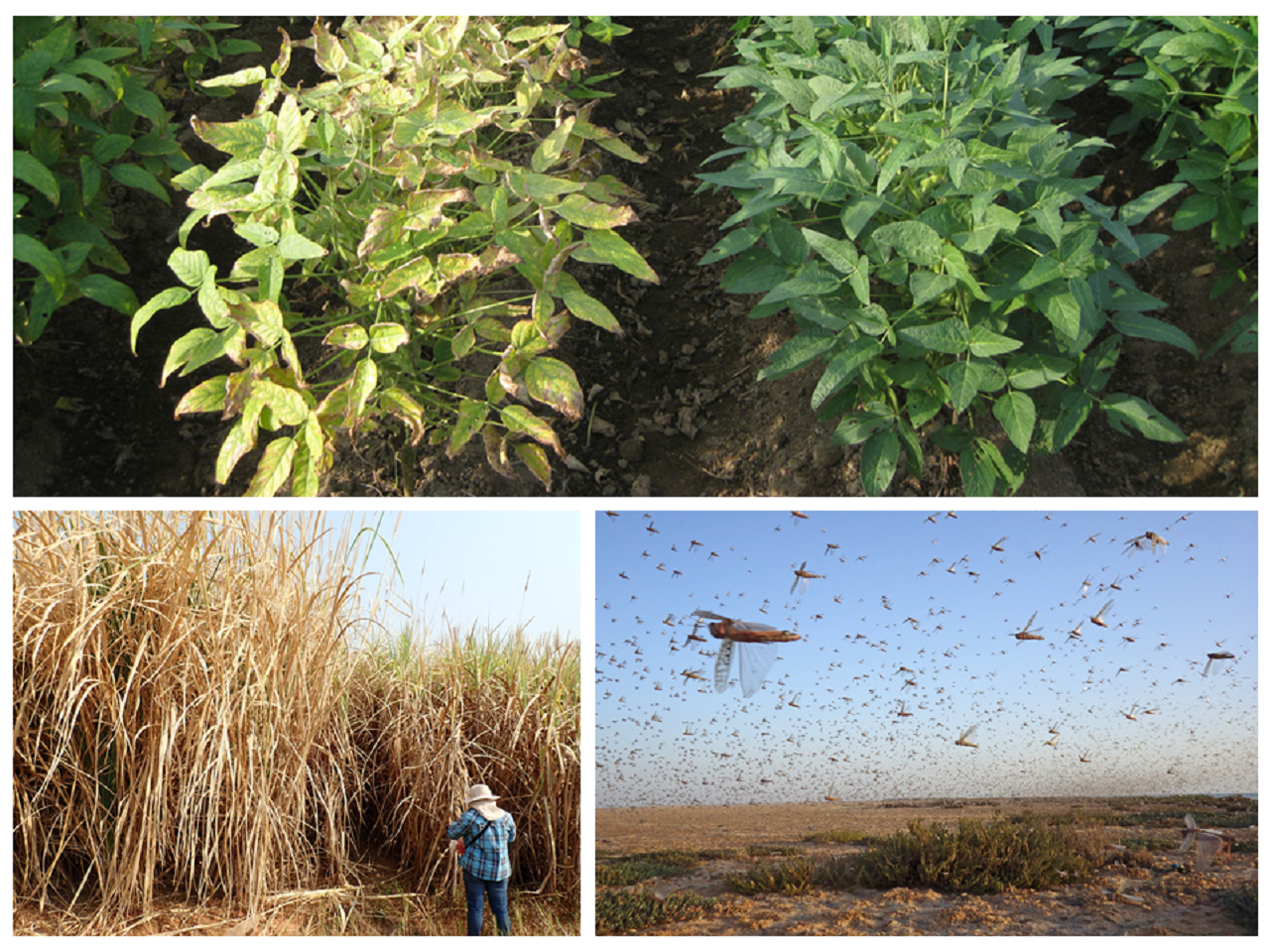Pick Up
478. Technology Development for Stable Agricultural Production under Adverse Environment and Changing Climate Conditions

The Sustainable Development Goal 2 (SDG2) aims to eradicate hunger, achieve food security, improve nutrition, and promote sustainable agriculture. However, in Africa and other developing regions, it is known that environmental factors such as low soil fertility and drought, as well as biotic stresses such as pests and diseases prevent the full potential of agriculture from being realized.
In order to ensure food and nutrition security in such areas, JIRCAS has implemented the Environmental stress-tolerant crops project, the High-yielding biomass crops project and Pest and disease control project in the Stable Agricultural Production Program during the Fourth Medium to Long-term Plan period (FY2016-2020). A review of these projects titled Technology Development for Stable Agricultural Production under Adverse Environments and Changing Climate Conditions was published in the Japan Agricultural Research Quarterly (JARQ) in October 2021.
This review describes how these projects (1) aimed to develop technologies and crops with high productivity and adaptability to unfavorable environments and climate change, (2) identified genes involved in these traits and used them to develop breeding materials to develop crops with environmental stress tolerance and disease resistance, and (3) elucidated the ecology of pest outbreaks and developed control technologies based on them to develop effective control technologies for transboundary pests.
The new coronavirus disease (COVID-19), confirmed in December 2019, is now affecting the entire world. COVID-19 has exposed vulnerabilities and weaknesses in food systems that were already stressed by climate change. Efforts to achieve stable food production and reduce malnutrition are becoming increasingly important. It is therefore indispensable to promote the necessary research and development for stable agricultural production in order to contribute in achieving food, nutrition and energy security in developing regions.
Pests and diseases also spread across national borders and cause damage to crop production, as COVID-19 has caused significant damage worldwide. In order to mitigate transboundary pests and diseases, it is necessary for the affected countries and regions to make concerted efforts and pool their resources. It is important for research institutions to implement effective countermeasures through international research cooperation across the countries involved. Such joint activities will enable early detection, prevention, and rapid control. Under a strategic program aimed at addressing transboundary pests and diseases, we need to make further contributions to the promotion of global efforts to achieve sustainable food production and environmental conservation, and to achieve the SDGs.
JIRCAS started its 5th Medium to Long-term Plan (2021-2025) in April 2021. In the Resilient crops project and Transboundary pest management project of the Food Program, and Tropical crop genetic resources project of the Information Program, we are continuing our research efforts for stable agricultural production under adverse environments and climate change in cooperation with domestic and international research institutions.
References
Nakashima K, Urao T, Xu D, Ando S and Kato M (2021). Technology Development for Stable Agricultural Production under Adverse Environments and Changing Climate Conditions. JARQ 55 (4):295-305, DOI:10.6090/jarq.55.295, https://www.jircas.go.jp/ja/publication/jarq/2020j11
5th Medium to Long-Term Plan
【Food Program】
Technology development towards building a new food system with improved productivity, sustainability and resilience https://www.jircas.go.jp/en/program/prob
【Resilient crops】
Development of resilient crops and production technologies
https://www.jircas.go.jp/en/program/prob/b1
【Transboundary pest management】
Development of environment-friendly management system against transboundary plant pests based on ecological characteristics https://www.jircas.go.jp/en/program/prob/b3
【Information Program】
Strengthening function as an international hub for providing strategic information on agriculture, forestry and fisheries, and mobilizing new research partnerships
https://www.jircas.go.jp/en/program/proc
【Tropical crop genetic resources】
Advancement of tropical crop genetic resources utilization through the development of database, technologies and research networking
https://www.jircas.go.jp/en/program/prob/c4
Picture caption
Top: Soybean line transgenic for salt tolerance (Right, photo by XU Donghe)
Upper left: Erianthus growing vigorously in northeastern Thailand (Left: Erianthus, right: vigorous sugarcane; photo by ANDO Shotaro)
Lower right: Swarm of desert locust (Photo: MAENO Kotaro)
Contributors: NAKASHIMA Kazuo (Director, Food Program), URAO Seiji (Risk Management Office), XU Donghe (Biological Resources and Post-harvest Division), ANDO Shotaro (TARF), KATO Masayasu (Research Planning and Partnership Division)
